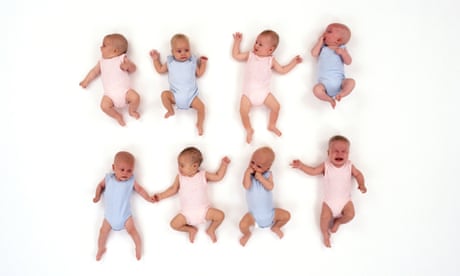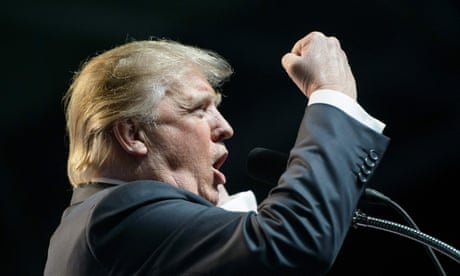In the Oscar-winning The Big Short, Steve Carell plays the angry Wall Street outsider who predicts (and hugely profits from) the great financial crash of 2007-08. He sees sub-prime mortgages rated triple-A but which, in reality, are junk – and bets billions against the banks holding them. In real life he is Steve Eisman, he is still on Wall Street, and he is still shorting stocks he thinks are going to plummet. And while he’s tight-lipped about which ones (unless you have $1m to spare for him to manage) it is evident he has one major target in mind: continental Europe’s banks – and Italy’s are probably the worst.
Why Italy? Because, he says, the banks there are stuffed with “non-performing loans” (NPLs). That’s jargon for loans handed out to companies and households where the borrower has fallen behind with repayments, or is barely paying at all. But the Italian banks have not written off these loans as duds, he says. Instead, billions upon billions are still on the books, written down as worth about 45% to 50% of their original value.
The big problem, says Eisman, is that they are not worth anywhere near that much. In The Big Short, Eisman’s staff head to Florida to speak to the owners of newly built homes bundled up in “mortgage-backed securities” rated as AAA by the investment banks. What they find are strippers with loans against multiple homes but almost no income, the mortgages arranged by sharp-suited brokers who know they won’t be repaid, and don’t care. Visiting the housing estates that these triple-A mortgages are secured against, they find foreclosures and dereliction.
What is very negative is that in every country in Europe, the largest owner of sovereign bonds are that country’s banks
In a mix of moral outrage at the banks – and investing acumen – Eisman and his colleagues bought as many “swaps” as possible to profit from the inevitable collapse of the mortgage-backed securities, making a $1bn profit along the way.
This time around, Eisman is not padding around the plains of Lombardy because he says the evidence is in plain sight. When financiers look to buy the NPLs off the Italian banks, they value the loans at what they are really worth – in other words, how many of the holders are really able to repay, and how much money will be recovered. What they find is that the NPLs should be valued at just 20% of their original price. Trouble is, if the Italian banks recognise their loans at their true value, it wipes out their capital, and they go bust overnight.
“Europe is screwed. You guys are still screwed,” says Eisman. “In the Italian system, the banks say they are worth 45-50 cents in the dollar. But the bid price is 20 cents. If they were to mark them down, they would be insolvent.”
Eisman is careful not to name any specific Italian bank. But fears about the solvency of the system – weighed down by an estimated €360bn in bad debts – are not new. In official “stress tests” of 51 major European banks in July by the European Banking Authority, Italy’s third largest bank, Banca Monte dei Paschi di Siena, emerged as the weakest. It triggered a rescue package – and soothing words from Italy’s finance minister, who said there was no generalised crisis in the banking system. But MPPS’s share price remains at just 25 cents, down more than 90% from two years ago.
How worried should British bank account (and shareholders) be? “I’m not really worried about England’s banks,” says Eisman. “They are in better shape than most in Europe.” When it comes to the US, Eisman’s outrage, so central to the plot of The Big Short, has melted away (just don’t start him on Household Finance Corporation, the HSBC-owned lender at the heart of sub-prime crisis). “I think the regulators did a horrendous, just horrendous job pre-crisis. But under the Fed, the banks have been enormously deleveraged and de-risked. There are no sub-prime mortgages any more... the European regulators have been much more lenient than the US regulators.”
Eisman was of the view that US banks were rather boring as an investment – although Donald Trump’s victory has changed that. “I have a feeling there could be a softening in the Department of Labor rules (an Obama-led crackdown on how banks sell financial products) and the regulatory environment has now changed in favour of the banks.”

Steve Eisman: ‘I’m not really worried about England’s banks. They are in better shape than most in Europe.’ Photograph: Bloomberg via Getty Images
Trump’s victory has sent the bond markets into disarray, with the yield on government bonds rising steeply. While this sounds good for savers – interest rates could rise – it is bad news for the holders of government bonds, which fall in value when the yield rises. Eisman sees that as another woe for Europe’s banks, who hold vast amounts of “sovereign bonds”.
“What is very negative is that in every country in Europe, the largest owner of that country’s sovereign bonds are that country’s banks,” he says. As the bonds decline in value, then the capital base of the banks deteriorates.
He doesn’t share the optimism around Deutsche Bank since Trump’s victory. The troubled German bank, facing a $14bn fine in the US for mortgage bond mis-selling, was for a long time one of the biggest lenders to the Trump business empire. In the three days after Trump’s victory, shares in Deutsche Bank, regarded as Europe’s most systemically important bank, jumped by a fifth from €12.90 to €15.30 as traders bet on Trump-inspired leniency over the fine.
But Eisman doesn’t buy it. By his reckoning, Deutsche Bank was less fundamentally profitable than its rivals, and relied more on leverage to boost earnings. His analysis suggests it will struggle to return to its former profitability.
Critics will point out that shorting the likes of Banca Monte dei Paschi di Siena or Deutsche Bank sounds fine – except that the share price of both have already fallen so dramatically the bad news is already in the price. But we don’t know for sure if they are Eisman’s precise targets – because he’s not willing to say unless you give him at least $1m to manage in one of his “personal accounts”.
Eisman now effectively runs his own “boutique” operation within a bigger Wall Street firm, Neuberger Berman. His “Eisman Long/Short SMA” account has opened to wealthy investors, and in January he will be in London drumming up interest among investors.
But not everything Eisman touches turns to gold. He declines to say how much he made during the financial crash, when he was manager of funds at FrontPoint Financial Services, though it was reportedly as much as $1bn. But in 2010 FrontPoint ran into trouble after one of its manager pleaded guilty to insider trading and was given a five-year prison sentence.
Eisman later set up a hedge fund, Emrys Partners, gathering nearly $200m from investors, but its returns were relatively humdrum compared to the drama of the great crash, making 3.6% in 2012 and 10.8% in 2013, according to the Wall Street Journal.
Did he think the film accurately portrayed what went on? He visited the set, and gave Carell and the other actors (Brad Pitt and Christian Bale also starred) advice and notes.
“When I saw the film, I thought it was great and that Steve Carell was wonderful. But I thought, hey, I wasn’t that angry. After the crash I was interviewed by the Federal Crisis Inquiry Commission, and I saw a transcription later on. After reading it, I realised that ‘yes’, I really was that angry... but the Fed has done a very good job since.”






